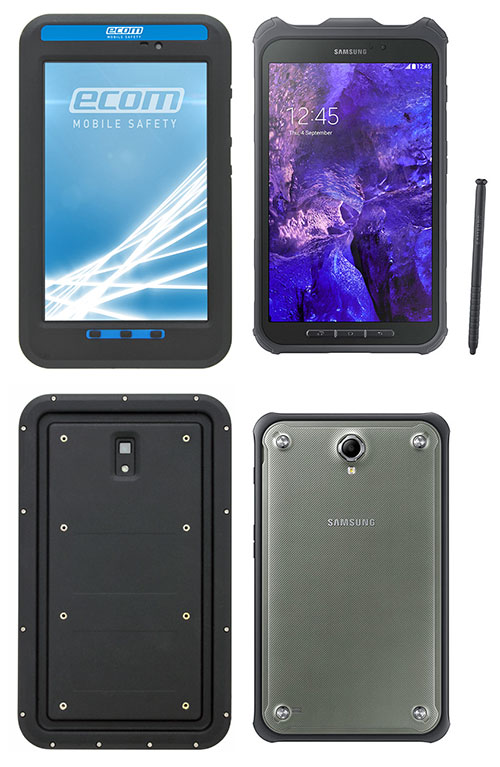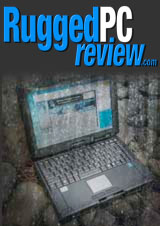« September 2014 | Main | December 2014 »
November 4, 2014
Intrinsically safe ecom Tab-Ex: another rugged tablet based on Samsung hardware
This morning I saw in the news that at the IFA Berlin show, ecom instruments launched what the press release called the "world's first Zone 1/Div. 1 tablet computer". New tablets are launched all the time, but I quickly realized that this was relevant for two reasons:
First, the Zone 1/Div. 1 designation means it's a tablet for use in hazardous locations. Zone 1, in the IEC/ATEX classification system that handles intrinsic safety issues, means the devices can safely be used in areas where there are flammable gasses are likely present. In essence, that requires that there's no chance that the device can generate sparks or other means that could lead to explosions. I'd need to look up what exactly Div. 1 refers to; there are two different entities handling this classifications, the North American National Electric Code (NEC) or the European ATEX directive.
Intrinsically safe devices, i.e. devices that are incapable of igniting gasses, dust or vapors, are very important in certain deployments, and so this new em tablet will certainly attract attention.
The second reason why this new em ecom Tab-Ex tablet is relevant is that it's another example of a stock consumer Samsung tablet inside a specially developed case. In May 2014 we took a detailed look at the N4 device from Two Technologies, which is a Samsung Galaxy Note II with a value-added rugged case that also included a second battery and a physical keyboard (see our review here). But whereas the Galaxy Note II is a 5.55-inch "phablet," the ecom tablet is based on the Samsung Galaxy Tab Active with a much larger 8-inch screen. And the Tab Active offers pretty impressive ruggedness specs even without any third party enhancements: It's IP67-sealed, it can handle four-foot drops, and its 400-nits backlight is bright enough to handle outdoor viewing. The Tab Active is a US$700 tablet and you can see its full specs here.
ecom isn't hiding the fact that their Tab-Ex is based on a Samsung tablet. Even the press release openly states that this type of solution "provides compatibility and a wide range of preloaded applications for a safer work environment, including unparalleled security functions like device encryption, MDM, VPn and secure connectivity (Samsung knOX)." And, perhaps even more importantly, that "being able to offer the same internal tablet, Samsung GAlAXY tab Active, ecom provides a key benefit of consistency in product use - whether Rugged, Zone 2 / Div. 2, Div. 1 or Zone 1. And, the software applications you develop for the Samsung Galaxy Tab Active will work unchanged on the Tab-EX01."
All of this makes the em Tab-Ex another interesting case in the current discussion on where the rugged computing industry should be moving to best take advantage of the worldwide popularity, and impressively high-tech, of consumer smartphones and tablets. As is, there are vehemently different opinions in the industry. Some feel that it makes perfect sense to pack readily available consumer technology into a value-added case whereas others feel that the guts of a rugged device had to be just as rugged, and the rugged market was inherently incompatible with the 6-month product/technology cycle in the consumer market.
Below you can see the ecom TabX on the left, and the donor Samsung Tab Active on the right.

And here are the ecom Tab-Ex product page and the Tab-Ex brochure.
Posted by conradb212 at 3:20 PM















